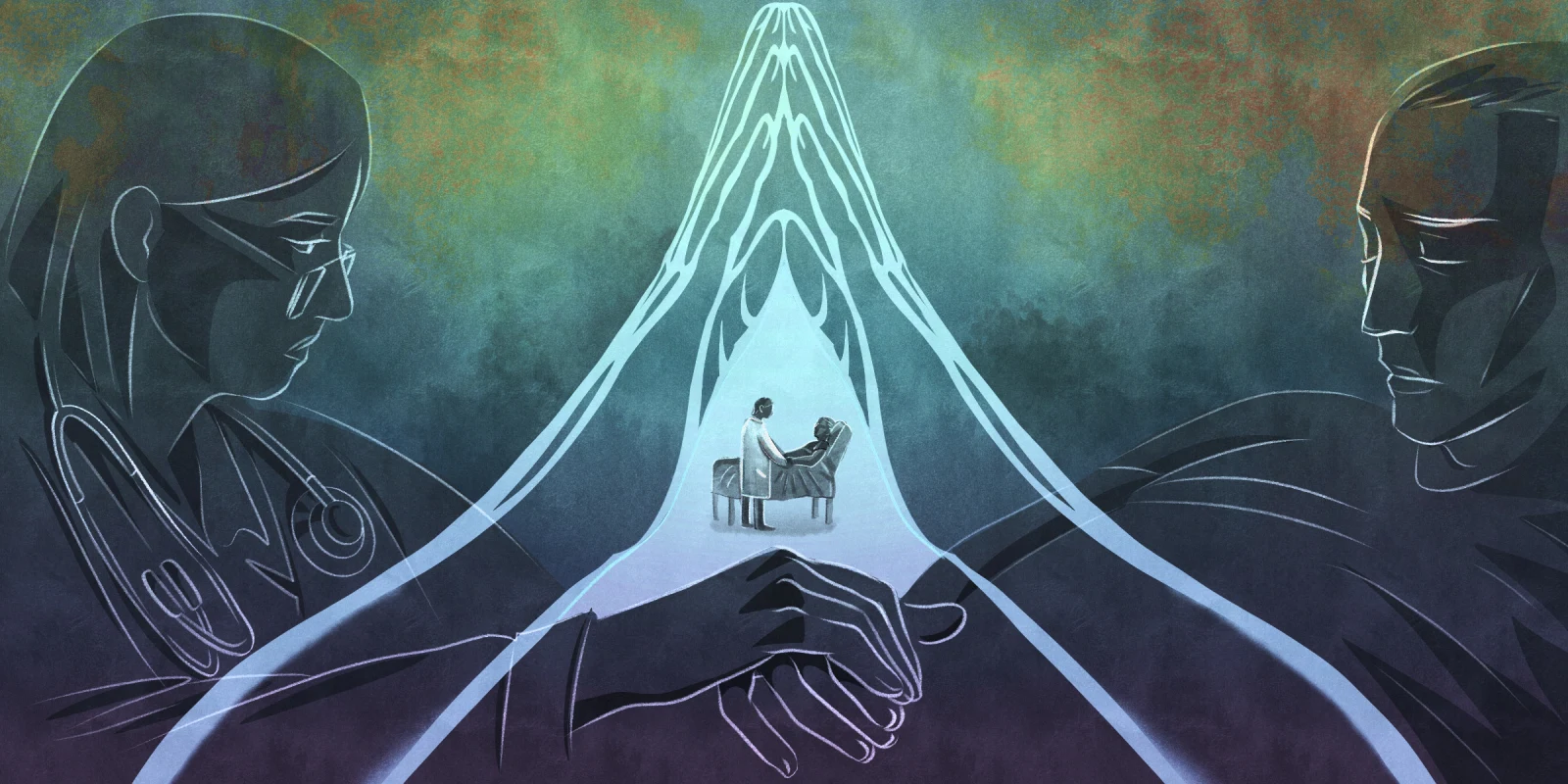The topic of death is a grim one. And so it is often avoided. Though I have avoided writing about the first time one of my patients died for the past four years, I remember it clearly. I still sometimes say her name in my head: Jane Doe. I know that it is very strange, but sometimes I repeat that name to myself to revive her memory, in the hopes that as long as someone remembers her, she might somehow still be alive. I remember being an eager medical student — naive to witnessing death — and hearing her say, “I don’t want to die.” It was my first time hearing those words, but I could offer no assurance for life or survival. They were chilling words. I suspected death was lurking in the corner and mocking us both.
I heard her stories of her time as a veteran and how many of her friends passed away years ago in a war. I listened to her musings about hoping to go to a hockey game next week, a ritual she had practiced every Wednesday for decades. I, too, was unaware that the previous hockey game she had attended would be her last, and that she would never see beyond the hospital walls again.
I was so green around the ears. I truly did not believe that she would die, as I had never seen death. Years later, I have developed a way to almost sense death, and I often know when it is impending, as many doctors do. My NBME shelf exam was coming up around the time of her surgery. I wondered if I should sit with her in the waiting area for her surgery or go study. I decided to sit with her and study at the same time. I attempted to start a conversation. Yet all I heard were the same words, “I don’t want to die.” She wrapped herself like a burrito and sunk down under the sheets, her head covered. She was much more quiet than the chirpy elderly lady she had been just days before, telling stories about cancer survival and the war. The last words I heard her say were answers to the anesthesiologist’s questions. Then she sunk beneath the sheets with her head covered. Again, she was quiet.
It was very unusual to me at the time, but I did my best not to interrupt her moments of silence. I respected that she wanted some quiet time. In hindsight, I wonder if she knew that death was coming, and that she was hiding, under the blankets, shivering in fear of her fate.
“What’s the hemoglobin on this patient?” the surgeon asked while we were in the OR. There was a moment of silence around the room until I answered. I felt proud to know my patient so well. As a medical student, I cut the stitches and held up instruments and smiled beneath my surgical mask, thinking that the procedure was a success. I imagined speaking to my patient right after and saying, “See, you’re alive!” However, in the recovery room, she remained deeply sedated. It was late at night, I imagined I would just have to tell her the next day.
The next morning, I was met with bewildering news. “ICU?” I asked with perplexity written all over my face. Unbeknownst to me, Jane Doe had a stroke overnight. I heard her words in my head: “Doctor, I don’t want to die.”
In the ICU, although she was unconscious, I spoke to her and examined her. Passersby might have thought I was out of my mind as I was talking to her. She was no longer my patient, because students were not assigned to take care of ICU patients. What could I have done better? Should I have suggested a preoperative bilateral carotid ultrasound? Would the residents or attending have listened to me? The surgery had to be performed despite all the risks. Die from this or die from that. Take the risk or not. And she chose to take the risk, with consent. Even then, would the outcome have changed for her?
My mind often goes back to that early morning, the first time I met her. It was barely 6 a.m. We were chugging around the hospital floors in our less-than-white white coats and rumpled scrubs as a large group. I always felt so honored to be a part of the team and proud to be given the opportunity for “intelligence and eloquence” when presenting cases. It was a world of magic to me. When the chief resident turned to me and said, “Go downstairs — ER 11,” I never dreamed the encounter would open me up to Jane Doe’s world. Today, I honor her memory and immortalize her in writing.
It is easy to grow cold and distant after seeing so many deaths. I sometimes emotionally distance myself from patients when I suspect that death is impending. It is a defense mechanism. A form of emotional self-preservation. Don’t get too close or you’ll get hurt. With time, we learn to keep a professional relationship with our patients and to conduct ourselves with poise even in the face of death, especially when we have no choice, like during the pandemic.
This is to Jane Doe: Your doctors have hearts. We care about you. Even after you’re gone. You leave us an impact that lasts years and years and, for some, is never-ending.
How do you honor patients of years past? Share your experiences in the comment section.
Dr. Morayo is passionate about writing, speaking, medicine for underserved populations, and patient advocacy. You can find her @e.morayo on Instagram and helping international medical graduates @usmleshark.
All names and identifying information have been modified to protect patient privacy.
Illustration by April Brust







